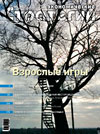Technologies of the VIth Technological Order and Risks of Socio-Humanitarian Development in the Post-Industrial Era
DOI: 10.33917/es-1.193.2024.42-53
Particular attention is paid to assessing the consequences of the spread of transhumanism as an ideology aimed at using the high transformative potential of convergent technologies not in line with humanistic values, but for deforming effect on humans, society and nature, which creates conditions for increasing social inequality and implementation of a model of a new social order based on the principles of “cybernetic totalitarianism”. The author raises a question of the need to create an alternative to transhumanism theory, based on socio-humanism and noospherism, which will allow using the creative possibilities of convergent technologies (primarily nature-like ones) to form a nature-like (bio-like) technosphere, on the one hand, and on the other hand – to improve the quality of life and to overcome severe physical and mental illnesses of a human. The role of bioethics and biopolitics in reducing the environmental, biosocial and socio-humanitarian risks of using new technologies is assessed.
References:
1. Kondrat’ev N.D. Bol’shie tsikly kon”yunktury i teoriya predvideniya. Izbrannye trudy [Large Conjuncture Cycles and the Theory of Foresight. Selected works]. Moscow, Ekonomika, 2002, 767 p.
2. Dement’ev V.E. Tsikly Kondra’’eva i postindustrial’naya ekonomika [Kondratieff Cycles and Post-industrial Economy]. Ekonomicheskaya nauka sovremennoy Rossii, 2018, no 4, pp. 7–19.
3. Sokolova S.N. O nekotorykh zadachakh filosofii v kontekste perspektiv tekhnologizatsii cheloveka [On Some Philosophy Tasks in the Context of Human Technologization Prospects]. Izvestiya TGU. Gumanitarnye nauki, 2015, no 1, pp. 19–30.
4. Kas’yanov V.V. Sotsium i chelovek v usloviyakh nauchno-tekhnicheskogo progressa [Society and a Man in the Context of Scientific and Technological Progress]. Obshchestvo: sotsiologiya, psikhologiya, pedagogika, 2012, no 1, pp. 11–15.
5. Khristolyubova N.E., Khudorenko E.A. Zarubezhnyy opyt sotsial’nykh posledstviy nauchno-tekhnicheskogo razvitiya: mesto obrazovaniya [Foreign Experience of Social Consequences of Scientific-Technological Development: Place of Education]. Otkrytoe obrazovanie, 2016, vol. 20, no 3, pp. 61–68.
6. Koval’chuk M.V. Ideologiya prirodopodobnykh tekhnologiy [Ideology of Nature-Like Technologies]. Moscow, Fizmatlit, 2021, 336 p.
7. Koval’chuk M.V, Naraykin O.S, Yatsyshina E.B. Prirodopodobnye tekhnologii — novye vozmozhnosti i novye vyzovy [Nature-Like Technologies – New Opportunities and New Challenges]. Vestnik Rossiyskoy Akademii nauk, 2019, vol. 89, no 5, pp. 455–465, DOI: https://doi.org/10.31857/S0869-5873895455-465
8. Buyanova M.E. Identifikatsiya i otsenka stranovykh riskov razvitiya konvergentnykh tekhnologiy [Identification and Assessment of Country Risks in Developing Convergent Technologies]. Vestnik Volgogradskogo gosudarstvennogo universiteta. Ekonomika, 2021, vol. 23, no 1, pp. 40–51, DOI: https://doi.org/10.15688/ek.jvolsu.2021.1.3





